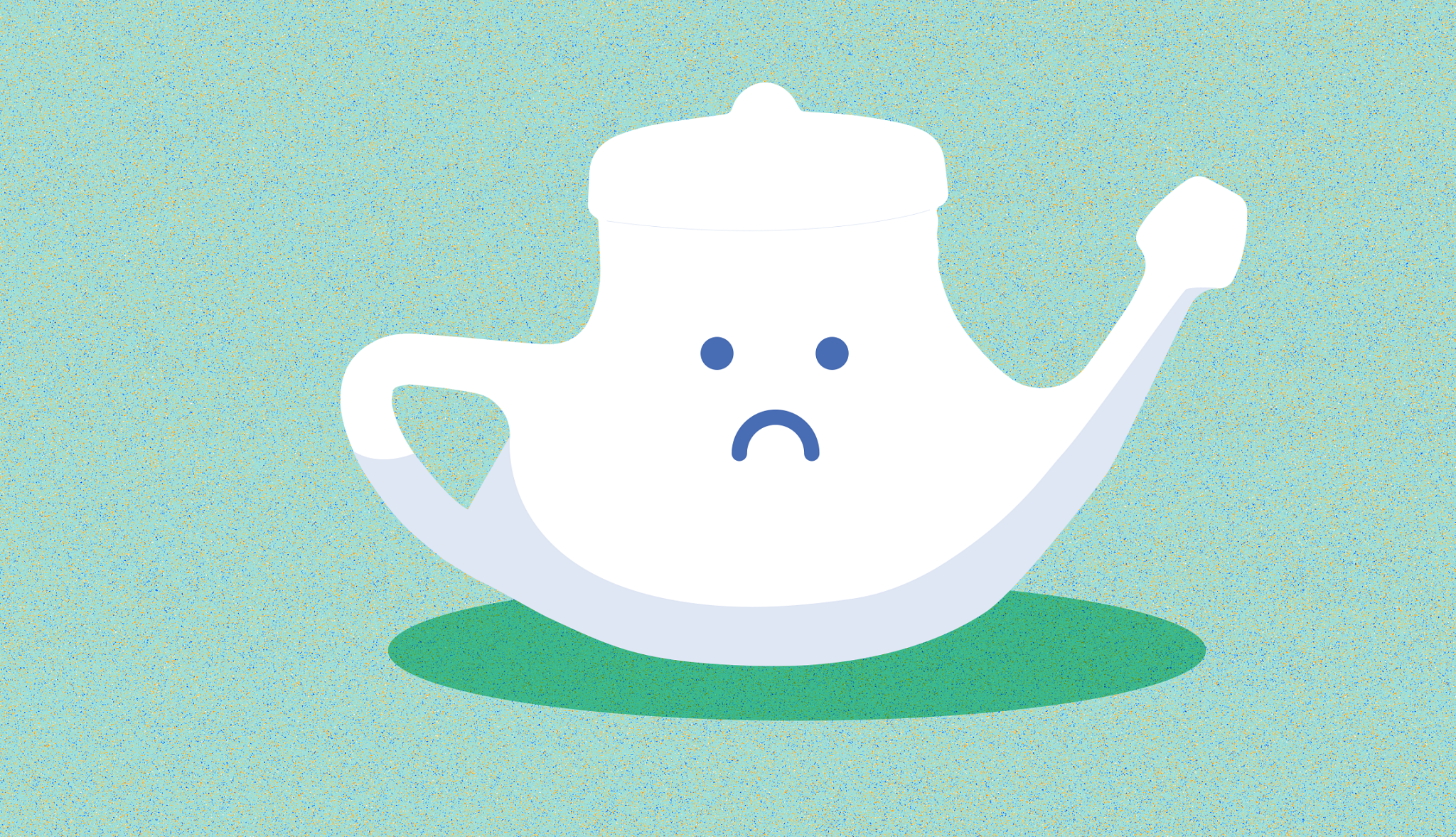Are you using your neti pot correctly?
Are you using your neti pot correctly?"
- Select a language for the TTS:
- UK English Female
- UK English Male
- US English Female
- US English Male
- Australian Female
- Australian Male
- Language selected: (auto detect) - EN
Play all audios:
If you didn’t know better, you might think a recent report about brain-eating amoebae among sinus sufferers was taken from a horror movie, rather than a study from the Centers for Disease
Control and Prevention (CDC). But this wasn’t the first time the CDC has warned people who use neti pots to flush out their sinuses about the dangers of doing so with regular tap water. More
than a decade ago, the horrors of another brain-eating amoeba tied to nasal rinsing made news. In the CDC’s new study, published recently in _Emerging Infectious Diseases_, researchers
focused on 10 patients, average age 60, all of whom were infected with a life-threatening amoebae (Acanthamoeba spp.) commonly found in soil and many types of water, including lakes,
rivers and tap water. Although the researchers can’t say for sure how the patients were infected, two clues helped point toward the likely culprit: All 10 patients had weakened immune
systems and all 10 practiced nasal rinsing (aka nasal irrigation) , a practice otolaryngologists (ear, nose and throat doctors) consider safe and an effective alternative to prescription
drugs for preventing and treating sinus woes — when done properly. “What the CDC has done is look back and discovered that among the few people — and I emphasize few — with this rare
cerebral amoebic infection, acanthamoeba, some of them got it by diving into lakes and streams” and some got it from using a nasal rinsing device such as a neti pot, says William Schaffner,
M.D., professor of preventive medicine and infectious diseases at Vanderbilt University School of Medicine in Nashville. The surprise, the researchers noted, wasn’t that three of the 10
patients died from the infection; the surprise was that so many survived. As the study noted, while infection with these amoebae is extremely rare — affecting only three to 12 people per
year in the U.S. — 82 percent of cases are fatal. Whether diving into a lake or stream, or practicing nasal rinsing, water is essentially pushed up into the nasal passages, giving potential
pathogens like these amoebae an opportunity to work its way into your central nervous system, Schaffner explains. The risk of infection, though rare, makes sense if you’re diving into murky
waters without using a nose clip or holding your nose. But how can a centuries-old practice of nasal rinsing expose you to the same dangers? Two words: tap water. At least half of the
patients in the CDC study used tap water in their nasal rinsing practices.
Trending News
Aishwarya rai bachchan and karan johar are not at loggerheads! Exclusive details* Home * Entertainment * Aishwarya Rai Bachchan and Karan Johar are NOT at loggerheads! Exclusive details HERE'S TH...
Fines should be increased for litter louts ‘make them clean it up! ’Readers voted in our poll on whether on the spot fines should be increased to stop the scourge of litter. A huge 98 perc...
Effects of imatinib mesylate (sti571, glivec) on the pharmacokinetics of simvastatin, a cytochrome p450 3a4 substrate, in patients with chronic myeloiABSTRACT The inhibition by imatinib of the cytochrome _P_450 3A4 isoenzyme may reduce the CYP3A4-mediated metabolic clea...
Toyen | City of Paris Museum of Modern ArtBorn in Prague, Toyen devoted herself to a career systematically at the convergence of her century's most radical m...
Mol unit wins steve madden contractMOL unit wins Steve Madden contract MOL said Steve Madden Ltd. has selected Hong Kong-based MOL Consolidation Service...
Latests News
Are you using your neti pot correctly?If you didn’t know better, you might think a recent report about brain-eating amoebae among sinus sufferers was taken f...
Proposals to expand troubled parc prison to house hundreds more inmatesTHE PLANS TO EXPAND THE WELSH PRISON COMES AS THE MINISTRY OF JUSTICE WARNS PRISONS IN WALES AND ENGLAND ARE 'DAYS ...
Alabama Local News - al.comUse of and/or registration on any portion of this site constitutes acceptance of our User Agreement, (updated 8/1/2024) ...
Page not found – Oregon ArtsWatchSorry, we couldn't find that page. The page you're looking for isn't here, or never existed in the first place. You can ...
India vs pakistan: i would always prefer rishabh pant in indian team, says deep dasguptaWith all-rounder Hardik Pandya likely to slot right back into the Indian XI for the Asia Cup Super 4 clash against Pakis...
